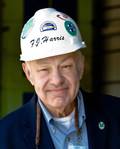Aalborg Værft A/S
- Shipyards
Aalborg Værft A/S was a prominent Danish shipyard located in Aalborg, Denmark. Established in 1912, the company played a critical role in the Danish maritime industry for most of the 20th century. Following are some key points about Aalborg Værft A/S:
Founding and Early Years:
- Aalborg Værft A/S, also known as the Aalborg Shipyard, was established to serve the growing shipping needs of Denmark and to support the maritime economy of the Aalborg region.
Expansion and Operations:
- Throughout its operational years, the shipyard expanded to build a wide range of vessels, including cargo ships, tankers, passenger ferries, and various types of industrial ships.
- The company's facilities were modernized over the decades to handle larger and more technologically advanced vessels.
World War II Impact:
- During World War II, like many other European industrial facilities, Aalborg Værft's operations were affected. The yard's activities were disrupted as Denmark was occupied by Germany, but it resumed full operations post-war and contributed significantly to the post-war rebuilding efforts in Europe.
Post-War Era and Peak Years:
- The decades following World War II were a period of growth for the shipyard. During the 1950s and 1960s, Aalborg Værft became one of the leading shipbuilders in Denmark, enjoying a reputation for producing high-quality vessels.
- The yard often collaborated with other Danish marine engineering firms to integrate advanced naval technology into its ships.
Economic Challenges:
- The global shipbuilding industry faced significant challenges during the 1970s and 1980s, including competition from East Asian shipyards, rising costs, and decreasing demand for new ships.
- These factors led to financial difficulties for Aalborg Værft, as for many other European shipyards.
Closure:
- Despite efforts to modernize and remain competitive, Aalborg Værft A/S could not sustain its operations amid the challenging economic environment. The company eventually ceased operations in 1988.
Legacy:
- Even though the shipyard closed, its legacy continues through the ships it built, many of which served for decades. Aalborg Værft's contributions to Danish maritime history are fondly remembered and acknowledged for their quality and craftsmanship.
Industry Impact:
- The shipyard's decline and closure were part of a broader trend where many European shipyards faced stiff competition and economic pressures, leading to a shift in the global shipbuilding industry towards Asia.
Although Aalborg Værft A/S is no longer operational, its historical significance remains a part of Denmark's rich maritime heritage.
Ships
ARAHURA
Car-& Train Ferry | Flag: New Zealand | Port: WELLINGTON
Maritime News

Hull Delivery Brings Near-Zero-Emission Vessel Captain Arctic Closer to Launch (Video)
The construction of Captain Arctic, a 69-meter near-zero-emission exploration vessel designed for sustainable cruising in polar waters, has reached a major milestone as its hull was completed by Goltens Dubai, marking the start of final outfitting and integration work.The vessel, owned by French company SELAR and built in collaboration with Chantier Naval de l’Océan Indien (CNOI) and Goltens Dubai, represents a major step in the integration of renewable energy systems into modern expedition ship design.The Captain Arctic combines wind propulsion and solar energy to cut carbon emissions by up to 90% compared with conventional vessels of similar size.

Obituary: Iconic Maritime, Shipbuilding Leader Fred Harris Passes
Frederick Joseph Harris of Mystic CT, passed peacefully at 5:47PM on 10/24/2025, with his family by his side. “Fred” was born on 11/25/1944 at Framingham Union Hospital to Frederick Everett and MaryRosa Camilla Harris.Fred was a proud patriot who loved his country. Fred received his bachelor’s degree in Marine Engineering from Maine Maritime Academy (with Honors) in 1967. Upon graduation, Fred was commissioned in the U.S. Naval Reserve with the obligation of sailing in the U.S. Merchant Marine. In the Merchant Marine, Fred sailed on various U.S. flag vessels, most notably aboard the SS Transglobe - the most decorated American merchant ship of the Vietnam War.

Watch: Supplying America, Securing America
The American Waterways Operators, the trade association of the American tugboat, towboat and barge industry, has released a new video on the industry's contributions to U.S. national and homeland security.The two-minute video, The Tugboat, Towboat and Barge Industry: Supplying America, Securing America, notes that while the mariners who transport cargo and facilitate commerce on America's rivers, coasts, harbors and Great Lakes are critical to powering the economy, they also play a vital role in safeguarding the nation.The do this by supporting the Coast Guard in securing borders and waterways; by moving military cargo on domestic waters and guiding Navy ships in and out of U.S.

US Navy Helicopter, Fighter Jet Crash in South China Sea
A U.S. Navy helicopter and a fighter jet crashed separately into the South China Sea within the space of an hour during routine operations conducted from the same aircraft carrier on Sunday, the U.S. Navy said, adding all personnel were safe.The incidents came while President Donald Trump was on a visit to Asia.Speaking to reporters aboard Air Force One on Monday, Trump said the crashes were unusual and could be due to "bad fuel," adding that what caused them would likely soon be known.The U.S. Pacific Fleet, in a post on X, said: "All personnel involved are safe and in stable condition. The cause of both incidents is currently under investigation.

HHI and HII Team Up to Build U.S. Navy Auxiliary Ships
South Korea's HD Hyundai Heavy Industries and U.S. military shipbuilder Huntington Ingalls have agreed to jointly build U.S. navy auxiliary ships, the South Korean shipbuilder said on Sunday.HHI has a strong track record in this field, having delivered its first auxiliary vessel, HMNZS Endeavour, to New Zealand in 1987, followed by the HMNZS Aotearoa in 2020. The company has also supplied the Republic of Korea Navy with three Cheonji-class and one Soyang-class auxiliary ships.Leveraging HII’s complex shipbuilding experience and HHI’s expertise with proven designs, the two companies will team to respond to the U.S.